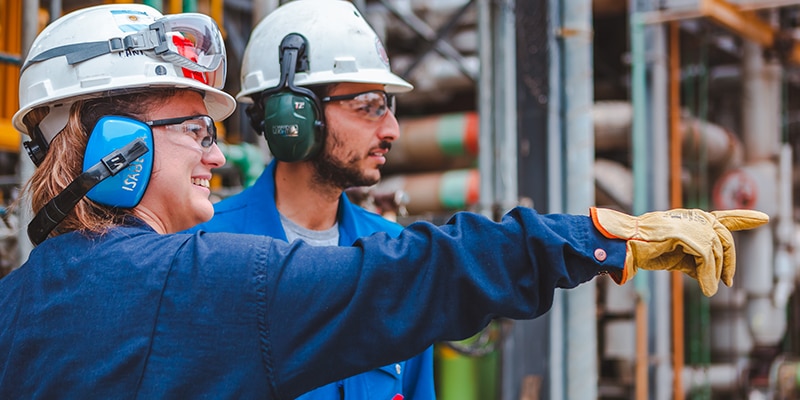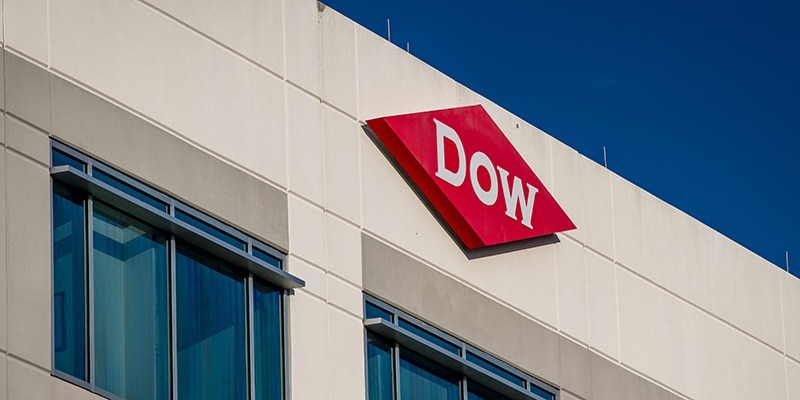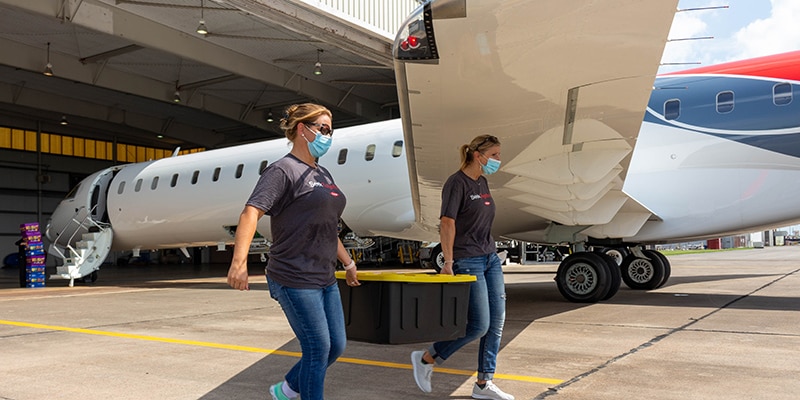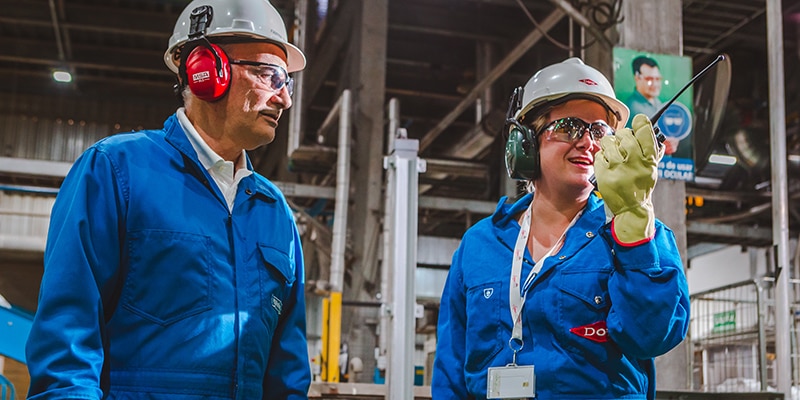Empowering students to create a sustainable future in Korea
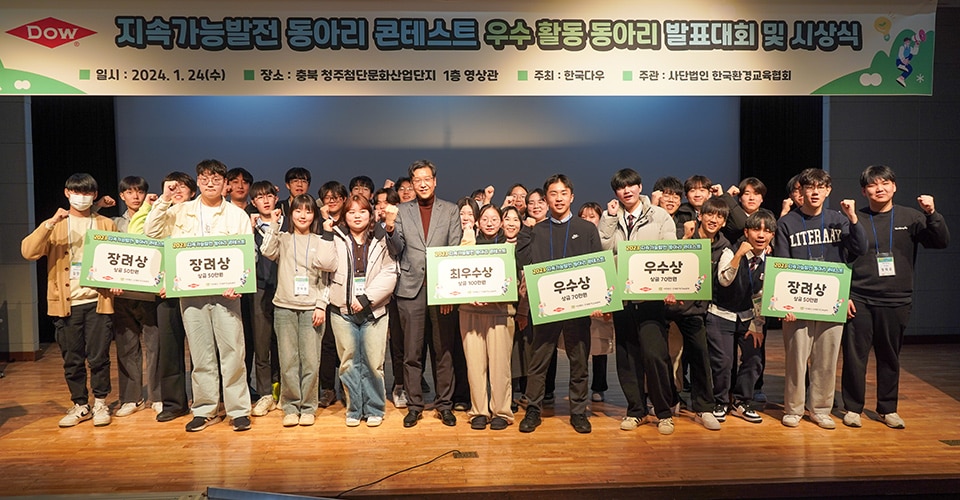
As an integral part of our strategy to support education, we are proud to increase access to STEM programs for students from all backgrounds.
Nelson Mandela once said: “Education is the most powerful weapon which you can use to change the world.” We couldn’t agree more. That’s why, across the globe, we are finding creative ways to invest in Science, Technology, Engineering and Mathematics (STEM) education for young students from all backgrounds.
In Korea, for example, for 17 years, we’ve partnered with the Korea Environment Education Association and local schools to give students hands-on, real-world experience that we believe can help shape their path and ignite their passion for sustainability and the power of STEM.
THE CHALLENGE
How do we inspire and equip the next generation of innovators?
Youth STEM programs are key to empowering more students to explore opportunities for a career in mostly scientific areas. However, not every school or district possesses the resources to implement STEM programs that engage with students beyond the standard curriculum.
THE SOLUTION
The Dow Sustainability Contest was launched in 2007 as part of a broader STEM program with the goal of cultivating young people to develop and enact sustainability projects within their own communities.
Starting as a one-day environmental education class, the program evolved into an annual contest among environmental clubs at middle and high schools in the Chungcheongbuk-do Province in South Korea.
To align with our current sustainability strategy, projects must address community challenges and fall within two categories: decarbonization and waste transformation.
During the contest, Dow volunteers provide feedback on the students’ projects. In addition to members of team Dow engaging during the event, student clubs received funding upfront to help launch the initiatives in their community.
Once the contest period concludes, students get an opportunity to practice their pitching skills and compete for additional funding to expand their project by presenting to a panel of judges comprised of the Dow country leader, Dow employee resource group leads and local educators.
Projects are judged based on their originality, feasibility, implementation plan, alignment with decarbonization and waste transformation and how easily project teams can share the results across their schools. Some projects that have continued year after year and have found support in the community to continue activities beyond Dow funding.
THE RESULTS
To date, more than 6,600 students from 268 middle and high schools have participated, with around 12 clubs participating each year.
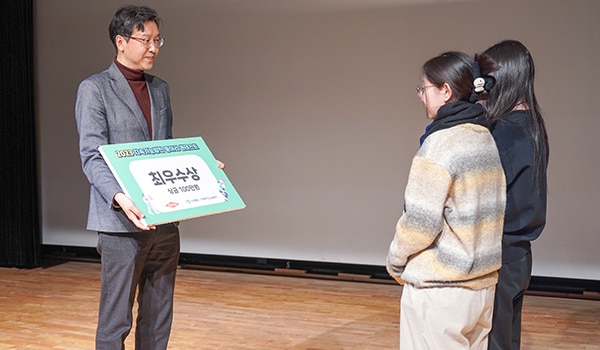
Sustainability contest winners presented with award

Judging panel evaluates student projects and presentations

Students present sustainability projects to judge panel
- Winners
- Judges
- Presentation
Here are some of the standout projects from the most recent series of contests.
Winning Project Highlights
- 2023 - The Sustainable Clothing, Sustainable Eating and Creating a Sustainable Region project by the Green Narae Class at Gongju Girls’ High School. The team organized a School Clothing Collection Day to collect unwanted clothing and donate them to those in need, specifically to the Yeowooli Environmental Market, where unused items are shared or exchanged.
- 2022 – The Eco Club from Miho Middle School, affiliated with the Korea National University of Education, developed various in-school recycling campaigns by reusing waste. Every Wednesday during lunch breaks, resource recycling activities were conducted, such as collecting waste batteries and milk packs, sharing uniforms donated by graduates to juniors, making eco-bags and embroidered brooches from discarded school uniforms and making crafts using socks.
- 2021 - The Senaeul Science Research Club from Daejeon Samchun Middle School focused on the usefulness of plastics and the environmental problems that occur when they become waste. The team aimed to find ways utilize plastics in a sensible way by researching its characteristics through a plastic decomposition and separation experiment using density, conducting environmental purification, upcycling activities and spearheading a public relations campaign both offline and online.
- 2020 - The SaengDongGam Club from Chungbuk National University High School organized a ‘RE-3’ campaign to REDUCE, REUSE and RECYCLE plastic waste. The team undertook environmental activities in and outside the school, such as collecting bottle caps, recycling transparent plastic cups, making eco-friendly notebooks with used paper, and collecting milk cartons.
As an integral part of our strategy to support education, we are proud to increase access to STEM programs for students from all backgrounds. It is our hope that through this contest, we have inspired the innovation and creativity skills necessary to address today’s and the future’s most complex sustainability challenges.

